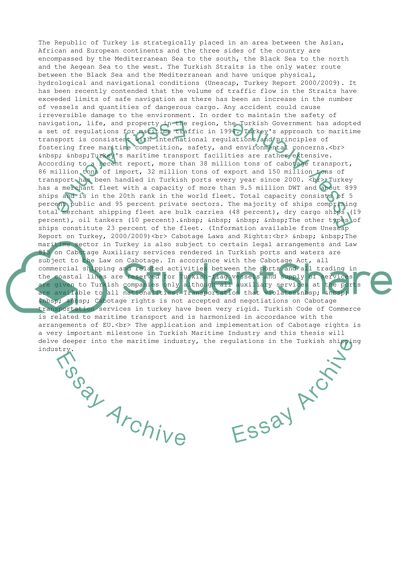Cite this document
(The Significance of Implementation of Cabotage Rights in Turkey Case Study, n.d.)
The Significance of Implementation of Cabotage Rights in Turkey Case Study. Retrieved from https://studentshare.org/management/1525588-turkish-maritime-cabotage-rights
The Significance of Implementation of Cabotage Rights in Turkey Case Study. Retrieved from https://studentshare.org/management/1525588-turkish-maritime-cabotage-rights
(The Significance of Implementation of Cabotage Rights in Turkey Case Study)
The Significance of Implementation of Cabotage Rights in Turkey Case Study. https://studentshare.org/management/1525588-turkish-maritime-cabotage-rights.
The Significance of Implementation of Cabotage Rights in Turkey Case Study. https://studentshare.org/management/1525588-turkish-maritime-cabotage-rights.
“The Significance of Implementation of Cabotage Rights in Turkey Case Study”, n.d. https://studentshare.org/management/1525588-turkish-maritime-cabotage-rights.


